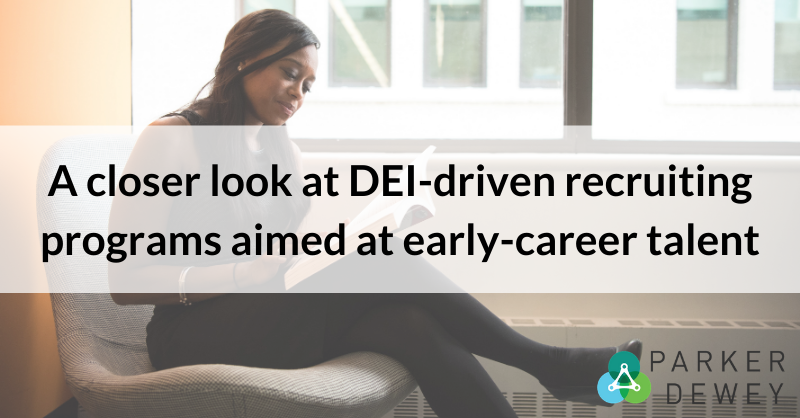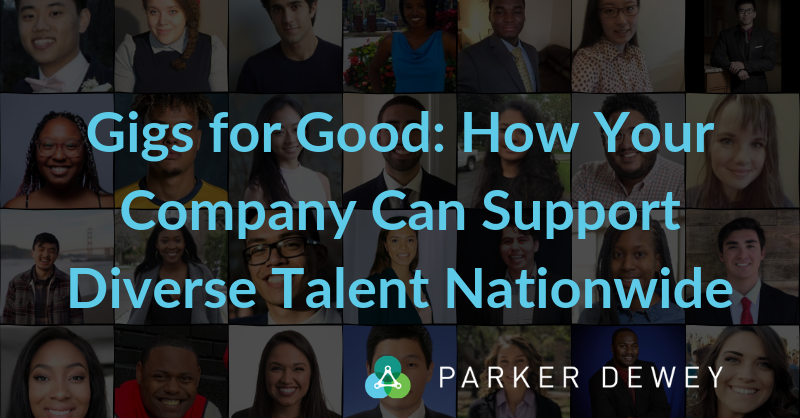
Why Early-Career Candidates Are Ghosting You and What You Can Do About It
Getting ghosted by early-career candidates can be frustrating, but it's more common than you might think. In fact, with more technology and tools available than ever before, it's surprising how often candidates seem to disappear after that initial connection—whether it's a career fair, interview, or job application.
So, why is this happening, and how can you prevent it? Here's a closer look at why candidates are losing interest and how Micro-Internships can keep your recruiting efforts from going dark.
The Spooky Truth About Ghosting in Campus Recruiting
Research shows that fewer students feel engaged by employers than they did even a few years ago. They're not hearing back after career fairs, networking events, or even application processes, causing them to lose interest or assume you've moved on. This isn't just a minor inconvenience—it's a missed opportunity to connect with top talent and keep your talent pipeline full.
While you may be tempted to blame the "ghosting" trend on candidates themselves, employers have just as much responsibility for keeping the conversation going.
Why Do Candidates Ghost Employers?
- Lack of follow-up: If you don't consistently reach out after the initial touchpoint, candidates will naturally assume you're not interested. Even if you interacted well at a career fair, that enthusiasm fades quickly without proper follow-through.
- Generic communication: Students today value personalized and authentic engagement. If your follow-up emails feel like a mass message or lack substance, they'll be easily disengaged.
- No clear next steps: Candidates crave direction. They will likely lose interest if they're unsure about what happens next or feel left in limbo.
How to Avoid Getting Ghosted: The Power of Micro-Internships
Rather than relying on traditional follow-up methods that can feel impersonal or ineffective, Micro-Internships offer a powerful way to keep early-career candidates engaged. Here’s how they can help prevent ghosting:
- Create immediate engagement: Offering a Micro-Internship as a next step after meeting candidates shows that you’re genuinely interested in their skills. It’s a practical way to invite them to stay connected and demonstrate their abilities in a real-world context.
- Provide authentic experiences: A Micro-Internship lets candidates see your company's culture and work environment firsthand. It's a much more engaging experience than simply reading about your organization online.
- Maintain ongoing interaction: These projects keep the conversation going, allowing you to build relationships over time rather than just sending occasional emails that may be ignored. It's a win-win—you see their skills in action, and they stay engaged with your brand.
Many employers have used Micro-Internships to turn brief introductions into long-term relationships. Imagine this scenario: an employer spots potential during a quick chat at a career fair and extends an offer for a Micro-Internship. This initial project, though brief, acts as a proving ground, allowing both the student's skills and adaptability to shine. As the project concludes successfully, it often paves the way for more substantial collaborations, such as extended internships or direct pathways to full-time roles, weaving these short encounters into enduring professional partnerships.
Ready to keep the conversation going?
Don’t let early-career candidates vanish after your next recruiting event. By integrating Micro-Internships into your strategy, you’ll create a consistent and engaging experience that keeps candidates interested and excited about your opportunities. Schedule an intro call with our team to learn how Parker Dewey can help you avoid ghosting and build stronger connections with your future talent.




